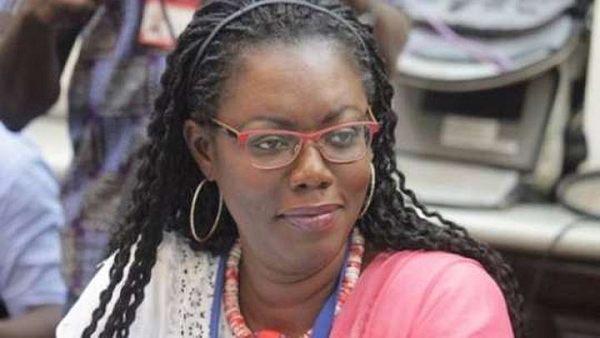
Government explores TV white space technology to increase internet accessibility
The Minister of Communications, Mrs Ursula Owusu Ekufful, has re-echoed government’s commitment to ensuring digital transformation and its readiness to embrace TV White Space (TVWS) technology in Ghana.
The new technology is expected to make internet connectivity accessible in every part of the country to improve the quality of life and services.
“There is the need for more solutions to connect the unconnected and the underserved in Ghana is of utmost to this administration. This initiative of providing this avenue to connect the unconnected with the TVWS is very commendable,” she said in a speech read on her behalf by her deputy, Mr Vincent Odotei Sowah, at a workshop on December 3 in Accra.
The TVWS makes use of unused TV channels between the active ones in the very high frequency (VHF) and ultra high frequency (UHF) spectrum which can also be deployed for broadband services.
The workshop was organised by the Dynamic Spectrum Alliance (DSA), in close partnership with the Ghana chapter of the Internet Society (ISOC-Ghana) on the theme; “TV White Space: a catalyst towards a digital Ghana.”
Regulatory framework
The Board Chairman of the National Communications Authority (NCA), Mr Kwaku Sakyi-Addo, announced that a draft framework to regulate operations of the TVWS technology had been prepared, pending approval.
He stated that the draft was put together after several trials and observations of the new technology’s viability.
“A TV White Space regulatory framework was subsequently drafted, public consultations were carried out followed by a workshop to discuss the outcome of the consultation.”
“The inputs which were received during the consultations and these workshops were used to finalise the draft regulatory framework which has since been forwarded to the NCA management and subsequently to the board which I am chair for consideration and possible approval,” he said.
Mr Sakyi-Addo said the new technology would cater for the Internet access needs of all, connect the unconnected and underserved communities at a reasonable cost.
Bridging the digital divide
The Chief Executive Officer (CEO) of Broadband Communication Chamber, Mr Gustav Tamakloe, underscored the need for digital literacy in the build up to the approval of the regulatory framework and hence full implementation of the TVWS technology.
That, he said, among other things would help bridge the digital gap and ensure a considerable internet penetration in Ghana, as was the case with mobile phone penetration.
He noted that the Internet population in Ghana had increased significantly due to the emergence of the Broadband Internet- about 10 million internet users were recorded in 2017 representing about 34 per cent compared to one million internet users in 2008.
Mr Tamakloe also added that content creation in various sectors such as health, education and local government and security services could beef up demand for internet penetration.
DTT migration
The Ghana Independent Broadcasters’ Association (GIBA) also urged the communication ministry to expedite action towards digital terrestrial television (DTT) which would serve as a catalyst to connect the rural areas to the urban centres through the TVWS technology.
On behalf of the GIBA, their representative on Digital Broadcasting Migration Committee, Mr Prince Hari Crystal, said “The GIBA will continually urge the sector ministry to expedite action on the completion of the DTT policy which is still in its draft form.”
He added that if the DTT policy was clearly outlined and the migration from analogue to digital broadcast media was finally executed before the June 2020 deadline, it would allow for the TVWS to catalyse the country’s digitisation agenda.